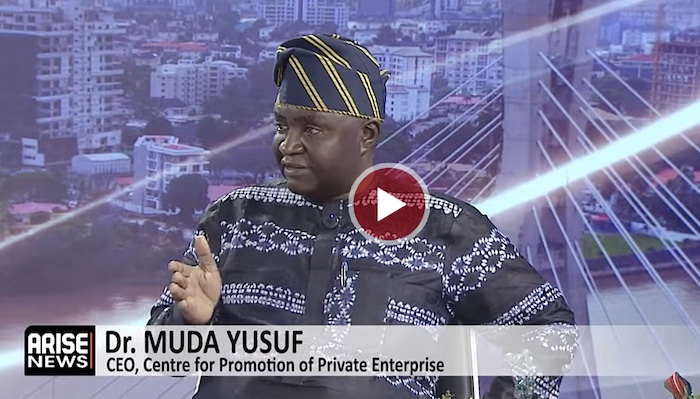
Eskom has successfully appealed a Labour Court judgment that ruled its practice of not shortlisting members of non-designated groups for advertised posts amounted to an absolute barrier and is not an affirmative action measure as contemplated by the Employment Equity Act (EEA).
A judgment handed down in the Labour Appeal Court on Wednesday upheld Eskom’s appeal and set aside and dismissed the Labour Court judgment handed down in May 2024.
In the 2024 Labour Court judgment, Judge Hilary Rabkin-Naicker had also ordered that “Eskom must take remedial steps to ensure that the said practice ceases”.
Rabkin-Naiker further ruled that Eskom had “unfairly discriminated” against Altus Erasmus.
The judge ordered Eskom to pay Erasmus compensation equal to 18 months of his salary at the time he applied for the post of manager for site outage execution at a peaking power station for Eskom’s group technology division.
However, Acting Labour Appeal Court Judge Cagney Musi – with Judge Kate Savage and Acting Judge Basheer Waglay concurring – said the evidence establishes that Erasmus was not appointed because of the employment equity (EE) targets and the pipeline Eskom implemented to change the demographics at senior management level.
“This was a rational way to target a particular class of persons who have been susceptible to unfair discrimination at that level.
“It was conceived to protect and advance them, and it promotes equality,” said Musi.
Comment was requested from Solidarity but a response has not yet been received.
ALSO READ: Labour Court rules Eskom’s hiring practice is unfair discrimination
Background
Erasmus was shortlisted for a post graded on Eskom’s “M16 Grade” because he described himself as “African” on the application form.
Eskom officials confirmed that Erasmus would not have been shortlisted “in that round” of the application process if he had described himself as a “white male”.
Erasmus has been employed by Eskom since 1 August 1988, was appointed as a project manager on “Managerial level M15” by Eskom Enterprises in September 2004 in the transmission telecommunication division, and was transferred to his then current position of senior advisor outage coordinator on 1 January 2017.
He was ultimately recommended for the position but was not appointed, leading to his dissatisfaction.
Acting Judge Musi said a Ms Dibela from Eskom’s Human Resources Division testified at the Labour Court that Erasmus would not have been shortlisted if he had indicated that he was white instead of African.
Dibela further testified that although the GA 13 (staff requisition form) indicated that the internal recruitment would not have an effect on employment equity, the EE assigned manager Dr Khumalo had indicated the position should preferably be filled by an African male or a female of all races.
Dibela testified that she understood Khumalo to be saying they could not appoint a white male based on Eskom’s pipelining on the senior management profile of the position.
Musi said Eskom’s EE plan was not challenged and its validity and applicability were also not challenged.
He said it was also not disputed that, in terms of Eskom’s targets, white males were over-represented in the Group Technology Division (GTD).
ALSO READ: ‘Eskom should focus on electricity, forget about race quotas,’ says union
The three-measures test
Musi referred to the judgment South African Police Services v Solidarity obo Barnard in which it was stated that the test whether a restitution measure falls within the ambit of Section 9(2) of the Constitution is threefold.
That judgment ruled that it:
- Must target a particular class of people who have been susceptible to unfair discrimination;
- Be designed to protect or advance those classes of persons; and
- Promote the achievement of equality.
It stated that once the measure in question passes the test, it is neither unfair nor presumed to be unfair because the Constitution says so.
Musi said it is common cause that the senior manager, a Mr Van Staden, informed the then general manager that he wanted to promote Erasmus to the post, and that Van Staden and a middle manager indicated that a white male should be appointed to the post.
Musi said Dr Khumalo should have been aware of the contents of the GA 13, specifically the intention to appoint a white male, otherwise she would not have recommended an African male or a female of all races should be given preference.
ALSO READ: Eskom board member’s BEE sentiments articulated by Solidarity – CEE
Erasmus’s race was known
He said the general manager and Van Staden knew Erasmus was a white male and there is no evidence that Mr Pasquallie, a middle manager, did not know that Erasmus was a white male.
Musi said they did not object to Erasmus being shortlisted, and likewise the human resources representative at the interviews did not raise any objection.
“It seems to me that Mr Erasmus was shortlisted and interviewed while Eskom knew that he was a white male.”
Dibela’s testimony “that they would not have shortlisted him had they known he was a white male is opportunistic”.
“The issue that he indicated that he was an African was never raised during or after the interviews.”
Musi said Erasmus accepted that if Dr Khumalo did not write what she wrote, white males would have been shortlisted and also conceded that there was a practice to allow for motivation to include people from over-represented groups, including white males.
He said Erasmus categorically stated that his grievance was that he was not appointed because of his skin colour because he was shortlisted despite Eskom knowing he is white.
ALSO READ: ‘Time for meaningful change is now,’ says labour minister after partial win over race quotas
Pipeline ‘rational’
Musi said although the pipeline is not mentioned in the EE plan, it is clearly a requirement on the GA 13 form and Van Staden and Pasquallie indicated the internal pipeline was considered when the GA 13 was completed.
“Consideration of the internal pipeline was therefore always a consideration.
“On the pipeline, the Labour Court correctly concluded that the pipeline appears to be a rational career pathing initiative to develop persons from designated groups towards taking up positions at senior management level.
“Mr Erasmus’ case that the pipeline concept was not part of Eskom’s recruitment and selection process is of scant assistance because it was a known practice and part of the GA 13,” he said.
This article was republished from Moneyweb. Read the original here.



